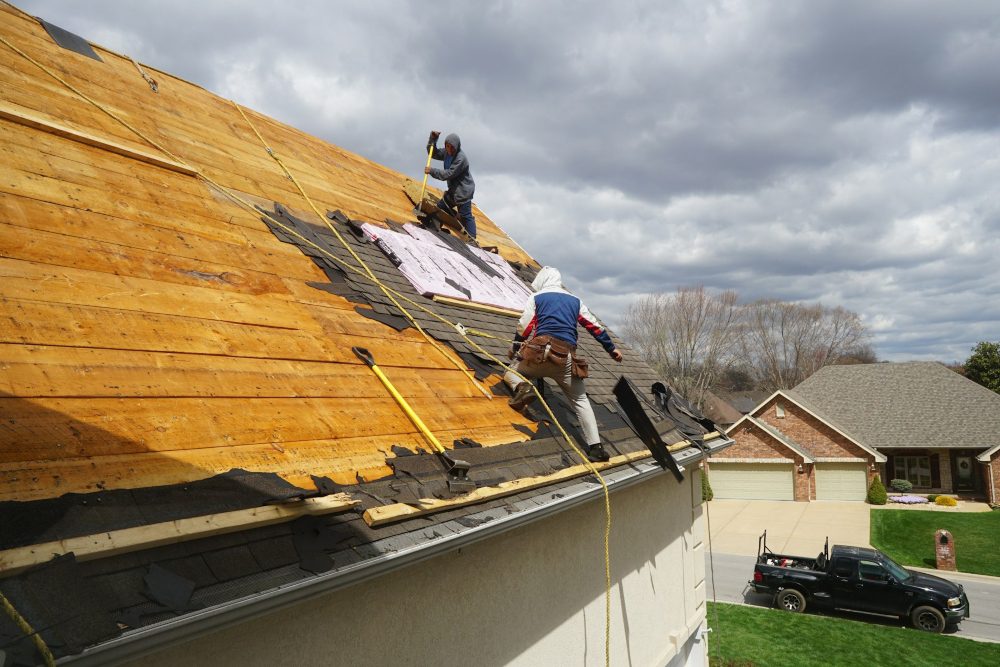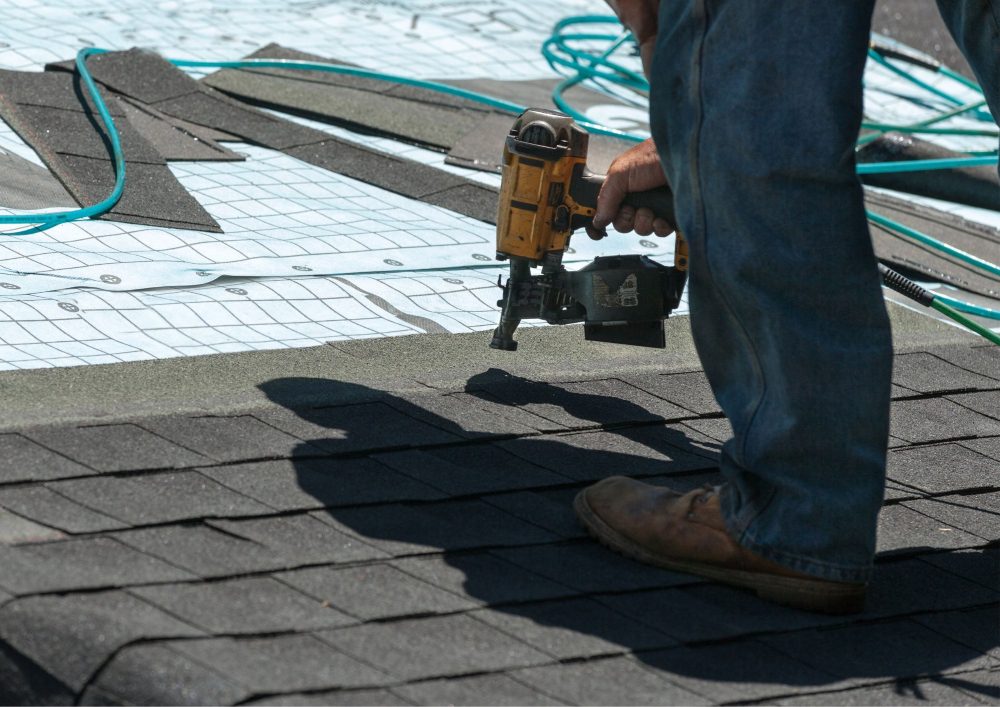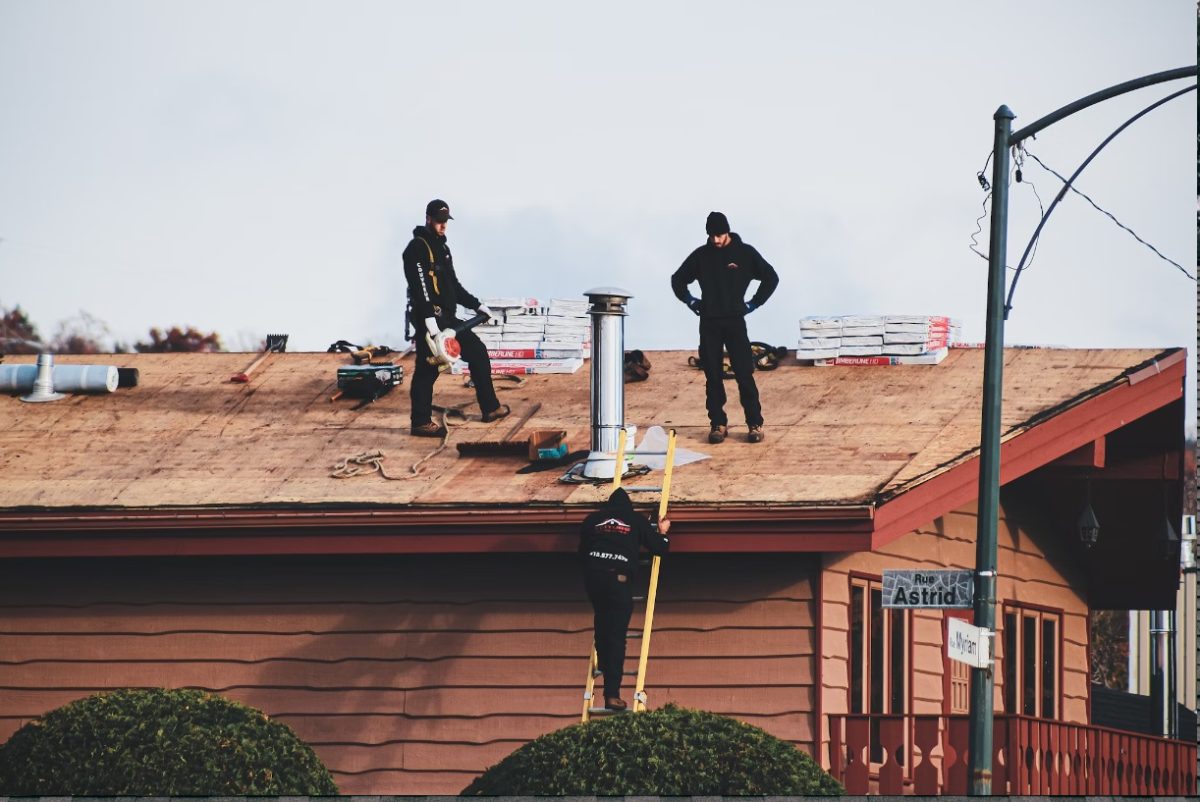Get the week's most popular posts delivered to your inbox.
Our weekly update is free yet priceless and you're less than a minute away from getting the current edition.
In the unlikely event we disappoint, you can unsubscribe with a single click!
Last Updated on March 19, 2025 by teamobn

Installing a new roof system is a substantial financial commitment; it’s one of the biggest exterior structures of a building, and notably, one of the few building components that are primarily assembled on-site, depending heavily on correct installation for its durability. The roof system comprises several parts: the deck, insulation, membrane, and flashings, all of which must operate in complete unison.
Contents
- 1 8 Tips for Choosing the Right Roofing Contractor
- 1.1 Ensure they are Licensed and Insured
- 1.2 Think About Hiring Roofing Contractors Who are Based in Your Locality
- 1.3 Talk About Their Available Warranty Options
- 1.4 Inquire About Unexpected Repair Procedures
- 1.5 Financial Strength
- 1.6 Quality of Service
- 1.7 Raw Materials
- 1.8 Anticipate a Written Estimate with Complete Clarity
- 2 Endnote
8 Tips for Choosing the Right Roofing Contractor
A faulty installation of these elements can lead to an early system breakdown. Consequently, the choice of contractor plays a crucial role in the successful longevity of the system. Here are eight key points to consider when scrutinizing and selecting the most suitable contractor for your roofing requirements.
Ensure they are Licensed and Insured
Engaging the services of licensed residential roofing professionals for your home project is crucial. This step could save you from a host of potential difficulties in the future, from the quality of work performed to adherence to local building regulations. Contractors must have a certain work experience and pass a building code proficiency exam to be granted a license.
A roofer who doesn’t possess a license isn’t recognized as a bonded contractor. Such contractors are insured, safeguarding your project if it isn’t completed. If a non-licensed contractor fails to complete the job, your chances of obtaining compensation or pursuing legal actions become significantly limited.
A roofer without a license usually lacks insurance coverage as well. This means there’s no liability or workers’ compensation protection. The contractor won’t be responsible for any damages incurred on your property. This leaves you to cover the costs of any required repairs. Additionally, if an employee of the contractor is injured while working on your roof, you may be held financially responsible for their medical expenses.
Think About Hiring Roofing Contractors Who are Based in Your Locality
When you’re sifting through potential roofing contractors, they must all share one essential characteristic: they should be local to your region. Any contractor you contemplate hiring should have a physical office and a contact number with the local area code. Opting for a local contractor ensures compliance with local codes, correct documentation, and future availability should any issues arise.
Another compelling reason to hire locally is the emergence of out-of-state companies post-major storms. These firms often provide services at prices lower than local contractors, pocket the payment, and then relocate to the next storm-affected area.
While a few storm-chasing roofing companies may be reputable, most are ignorant of or indifferent to local codes and might not install your roof appropriately. The worst-case scenario is investing in a new roof, only to discover it was installed incorrectly or doesn’t comply with the necessary standards.
The worst-case scenario involves investing in a new roof only to find out later that it was improperly installed or non-compliant with essential standards. To avoid this predicament, consider using a roofing cost calculator to assess the scope of work and compare contractors’ offerings more effectively. These tools help you make informed decisions, ensuring you choose a reliable, local roofing company that meets all your needs.
Ultimately, a local roofing contractor provides peace of mind and a higher likelihood of receiving quality workmanship, personalized service, and ongoing support—critical elements in protecting your home and investment.
Talk About Their Available Warranty Options
Be aware of two crucial types of warranties as you proceed. Many contractors and companies pledge to provide a manufacturer’s warranty, which, as the name implies, is directly from the material’s maker and only covers the materials’ quality. Determine if the contractor or company also provides a workmanship warranty.
Manufacturers will not cover the repair or replacement cost for materials installed incorrectly or compensate for any property damage caused by accidents or errors. These responsibilities fall on the shoulders of the roofer. Ensure complete protection against all potential work-related incidents for your roof investment.
Inquire About Unexpected Repair Procedures

Regrettably, home improvement often involves more unexpected repairs and emergencies than planned tasks. As you start dismantling walls or removing cabinets, you’ll likely encounter extra issues that demand attention.
This is equally true for roofing projects. Sometimes, the decking might be decayed or compromised by moisture, or the crew may uncover water damage that must be fixed before further moisture enters the property. Ask your roofing contractor about their procedures for unanticipated repairs. Doing so will prepare you for any surprises and know what to expect.
Financial Strength
Request the contractor supply the firm’s financial documents for a period suitable to your needs, typically three to five years. This ensures the contractor’s financial stability and adequate resources for your project. The significance of financial robustness escalates with the length of the project.
Finding another willing to take over can be extremely challenging if a contractor fails to complete the project. New contractors are unlikely to accept liability or responsibility for tasks they didn’t undertake. A manufacturer might also refuse to offer a warranty under such conditions.
The contractor should provide a list of financial references, including their primary suppliers – material manufacturers, equipment providers, disposal services, and distributors. Regularly interacting with suppliers can offer the most accurate insight into their actual financial strength.
Quality of Service

An efficient contractor will evaluate your roof before issuing an estimate. After identifying potential contractors, reach out to each for their pricing. If a contractor provides a quote without inspecting the condition of your roof, it may be best to eliminate them from consideration.
Reputable contractors often offer no-cost consultations and estimates. Their reliability and credibility can be assessed through their business dealings with other customers, their feedback, their promptness in returning calls, their timeliness, and their adherence to commitments. The last thing you want is to face additional issues beyond your roofing requirements.
Raw Materials
Ensure that the contractor you choose is trustworthy regarding the raw materials they will employ for your roofing system. Before beginning the project, verify the quality and grade of the materials with the contractor, as there are inexpensive alternatives accessible that you might not be aware of.
You wouldn’t want your contractor to exploit this lack of knowledge. Be clear about the type of materials you desire for your roofing system, and don’t settle when selecting the appropriate materials.
Anticipate a Written Estimate with Complete Clarity
Before commencing any work, ensure you receive an in-depth estimate that segregates both labour and material costs. This should also encompass any verbal commitments made. It’s advisable to obtain several quotations for the same job to make direct comparisons.
Before committing, ensure you have a detailed roofing contract specifying the project scope, materials, timelines, and payment terms. This contract will serve as a safeguard against potential misunderstandings and ensures both parties are clear on expectations.
If there are price discrepancies, don’t hesitate to ask for clarifications, and avoid choosing the contractor offering the lowest bid without thorough consideration. Lastly, always insist on a final copy of any documents with your signature.
Endnote
Selecting the appropriate roofing contractor is vital for your roofing project’s success. Assessing key elements like experience, licensing, reputation, cost, and warranties will enable you to make a well-informed choice that guarantees your roof’s long-lasting protection and resilience.
Dedicate time to investigate and contrast various contractors, pose relevant inquiries, and trust your gut feelings. With a competent contractor supporting your project, you can rest assured that your roofing endeavour is being handled proficiently.
Get the week's most popular posts delivered to your inbox.
Our weekly update is free yet priceless and you're less than a minute away from getting the current edition.
In the unlikely event we disappoint, you can unsubscribe with a single click!






